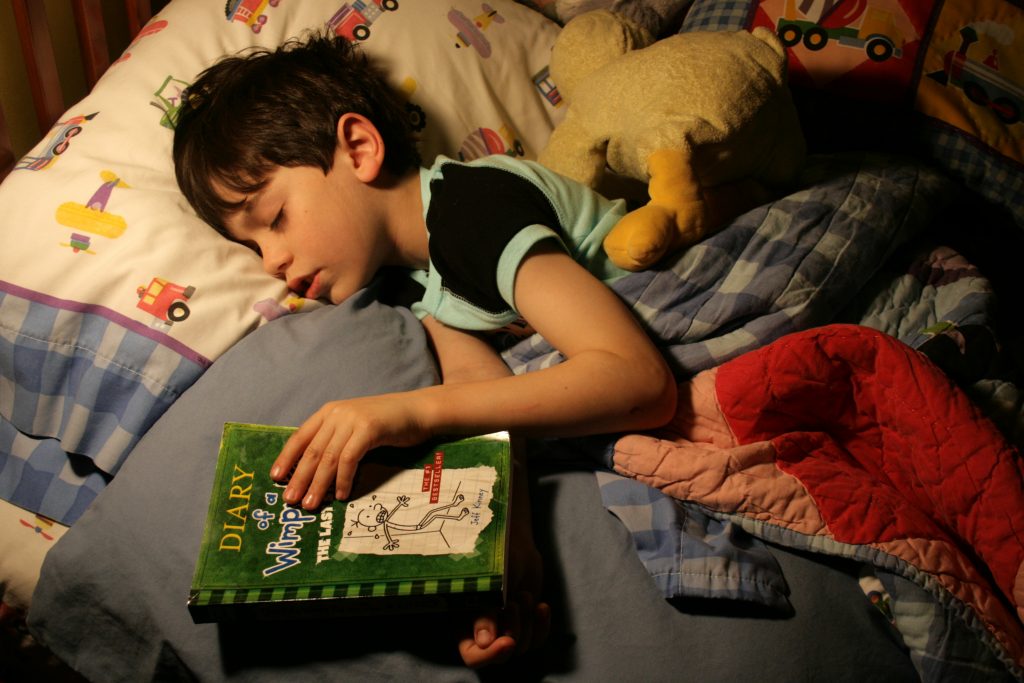
Your five-year-old still bedwetting?
At the start of each school year the National Continence Helpline is inundated with calls from concerned parents whose five-year-olds still wet their bed. With holidays now over, now may be a good time to re-visit the issue.
If your child still wets the bed occasionally at age five, it’s a good idea to take some simple steps now, particularly when children’s health professionals agree it is better to treat bedwetting earlier rather than later.
There are three main reasons children wet the bed:
- Some children are such deep sleepers, they don’t wake up to the sensation of a full bladder.
- Some children have overactive bladders; you will know this because they usually wet the bed more than once overnight and may experience urgency during the day.
- Some children don’t make enough antidiuretic hormone while sleeping (which concentrates the urine) and produce a lot of urine overnight.
Children’s continence nurse and National Continence Helpline advisor Claire Fyfield offers parents a few basic tips to help prevent bedwetting.
- Reduce the child’s fluid intake as the day progresses.
“Give the child a warm drink with breakfast and milk on their cereal. Have them drink plenty during the day so they don’t need any at bedtime, and always make sure they go to the toilet before bed,” Ms Fyfield said.
Some of the cases Ms Fyfield has seen have left her dumbfounded. “One child I saw had been having milo, tea and coffee before bed – just like mum and dad!”
- Prevent or treat constipation.
Ms Fyfield said many parents were unaware that constipation was a major contributor to children’s day and night-time wetting accidents.
“This is because a full, compacted bowel takes up space in the abdomen, compressing the bladder and reducing its volume, also risking other bladder problems.”
She said that up to 30 per cent of children were constipated at any given time.
“We always check for constipation if a child has a bedwetting problem. Avoiding constipation by providing adequate fluids and a balanced, fibre-rich diet containing fruit and vegetables, will often improve or end bedwetting,” she said.
- See a health professional after the age of six or seven.
By the age of six or seven, it’s recommended children who are still bedwetting see children’s continence professional, she said.
“Prior to the assessment, the family will be asked to chart the child’s diet and fluid intake, and bowel and bladder habits. We will also check for conditions like urinary tract infections, and look at stressful or disruptive situations, such as access weekends, that can affect the child. From this information we make a care plan for management.”
For those children who still wet the bed after all the preventative measures have been taken, treatments such as bed alarms work well, she said.
“If everything else is fine – their drinking patterns are good, their bowels are all normal – then we go for the alarm, which has about an 85 per cent success rate. However, make sure you are shown how to use them properly by a continence health professional,” she said.
Ms Fyfield encouraged parents with concerns about their child’s bladder or bowel habits to contact the free National Continence Helpline (1800 33 00 66), where continence nurse advisors can provide confidential advice, information about funding schemes, and the contact details of their nearest children’s continence service.
Go to continence.org.au for more information, a range of videos, a confidential online forum, or to download fact sheets on child hood toilet training, bedwetting, constipation, and good bladder and bowel habits.
This article was provided by the Continence Foundation of Australia, the peak national organisation working to improve the quality of life of all Australians affected by incontinence. For more information, go to continence.org.au
